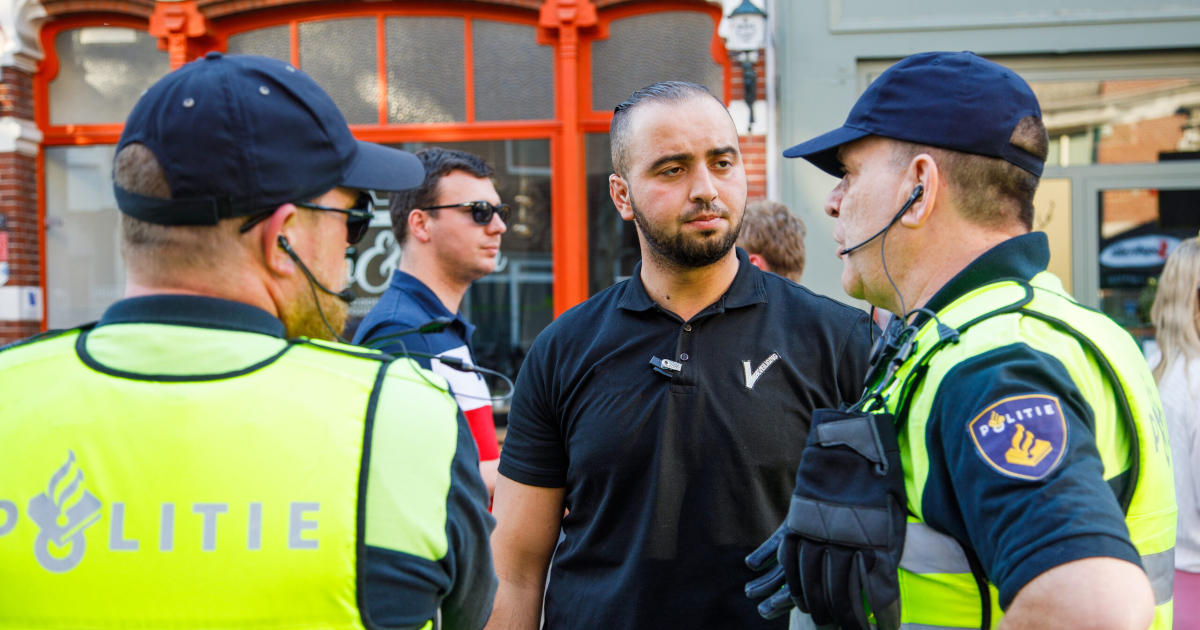Language:

Integral Reform of the Private Security Sector: A Crucial Step Towards a Safer Netherlands
Source photo: Google
The security domain of the Dutch government encompasses all activities aimed at ensuring the safety of individuals, objects, and services within the country. This domain is broad and includes protection against (terrorist) threats, disaster response, and crisis management. The tasks within this domain are diverse and include coordinating security and safeguarding, as well as preparing for risks and managing disasters and crises.
A central player in this security domain is the National Coordinator for Counterterrorism and Security (NCTV). This organization plays a crucial role in protecting the Netherlands against various threats such as terrorism, cyberattacks, and state threats. The NCTV coordinates both the safeguarding of people and objects and national crisis management. In doing so, it works closely with various partners to ensure national security and prevent societal disruption. The NCTV is responsible for strategically connecting involved parties and promoting measures to enhance the resilience of the Netherlands.
The diverse partners with whom the NCTV collaborates form a network of government agencies involved in the security domain. These partners include:
- The Ministry of Justice and Security, which bears overarching responsibility for security policy
- The National Police, which plays a crucial role in daily law enforcement and public safety
- The Royal Netherlands Marechaussee, which focuses on border control and the security of important objects and individuals
- The Immigration and Naturalization Service (IND), which contributes to security by regulating immigration
- The Custodial Institutions Agency (DJI), responsible for executing custodial sentences and measures that deprive freedom
- The National Cyber Security Centre (NCSC), which specifically addresses the digital security of the Netherlands
- The Central Agency for the Reception of Asylum Seekers (COA), which plays a role in the safe reception and guidance of asylum seekers
- Rijkswaterstaat, which contributes to safety on Dutch waterways
- The Fire Department, which plays an essential role in disaster response and crisis management
These partners work together under the coordination of the NCTV to realize an integrated approach to security. By pooling their expertise and capabilities, the effectiveness of the Dutch security domain is enhanced, allowing for effective responses to the diverse threats and challenges faced by our country.
The Private Security Sector: An Indispensable Link in the Security Chain
A notable aspect within the Dutch security landscape is that private security companies are not formally part of the government’s security domain. This is remarkable, as these companies often function as an extension of official security agencies in practice.
Private security companies play a crucial role in ensuring safety at locations freely accessible to the public. These include shopping centers, events, business parks, and other public spaces. In some cases, these locations can be potential targets for various threats and challenges, ranging from petty crime to more serious security risks.
The responsibility these companies bear is considerable. They often form the first line of defense and are essential in creating a safe environment for citizens in their daily lives. Their tasks include not only preventing and detecting crime but also responding to emergencies and supporting emergency services when necessary.
Despite their important function in the broader security spectrum, the private security sector operates largely independently of government structures. This raises questions about the integration and coordination between public and private security actors, especially in situations where seamless cooperation can be crucial for an effective response to security challenges.
Challenges in Private Security: Terrorism and Radicalization
In the current security landscape, private security companies face a wide spectrum of challenges, ranging from everyday crime to serious security risks. A particularly worrying aspect of this is the possible confrontation with radicalization and terrorism.
The Terrorism Threat Assessment Netherlands (DTN) currently maintains threat level 4, which is the second-highest level on a scale of 5. This means that the chance of a terrorist attack in the Netherlands is considered real. In this context, it is very likely that private security companies may encounter signs of radicalization or even concrete terrorist threats.
Despite the real threat and the important position that private security guards occupy in the security landscape, it appears that current security guards in the Netherlands are insufficiently prepared in terms of radicalization and terrorism. They currently lack proper training and education to adequately deal with these complex security issues.
A significant gap in preparing guards can be found in their basic training. In vocational training for General Security Guard, topics such as radicalization and terrorism, as well as related themes like polarization, activism, and extremism, are not standardly included in curricula. This leads to an inconsistent approach within the sector; some training institutes superficially address these topics while others completely ignore them.
This gap in training has far-reaching consequences. Guards who come into daily contact with the public—and could potentially be first responders to signs of radicalization or terrorist activities—lack essential knowledge and skills. They may not be able to recognize early warning signs or know how to act in situations related to these serious security risks.
The lack of standardized training creates a vulnerability in this first line of defense against terrorism and extremism in public spaces. This underscores an urgent need for a revision of training standards for guards that places greater emphasis on these critical safety aspects.
Need for Reform: Adaptation of Training and Competencies
For almost a year now, the Netherlands has been at threat level 4 according to the Terrorism Threat Assessment Netherlands (DTN). Given the current world situation and its influence on Dutch society, it is unlikely that this level will change soon. Radicalization and terrorism have been recurring topics in media coverage over recent years, underscoring this urgent safety issue.
In this context, it is essential that private security companies and their employees are adequately prepared for these challenges. This means that training for guards must be adapted to address these current threats effectively.
A fundamental change needed is integrating topics such as radicalization and terrorism into basic curricula for guard training programs. These subjects should become fixed components of training trajectories for new guards. For those already active in this field, it’s important they have opportunities to update their knowledge through certified courses offered by their employers.
Training aspiring guards on radicalization and terrorism requires time; it necessitates a thorough systematic approach to ensure knowledge transfer effectively integrates into daily practice.
By implementing this crucial change, we take an important step toward a more integrated safety landscape where private companies can function effectively as extensions of government domains.
This transformation positions private security as essential components within initial defenses against radicalization or terrorism; guards become valuable partners within broader networks forming critical links between citizens & official agencies—strengthening overall societal resilience against these serious threats.
Finally—the importance lies within close cooperation between private sectors & government agencies; enhancing expertise among guards not only improves their effectiveness but lays foundations towards streamlined exchanges with official bodies ensuring effective responses when required!
Call to Action: Joint Effort for a Safer Future
This blog is written with the aim of initiating a critical discussion within various sectors involved in security in the Netherlands. It is intended as a wake-up call for the government, private security companies, educational institutions that train security guards, and industry associations. The intention is to prompt these parties to reflect on the current state of training and preparation of security guards in light of the ongoing terrorist threat.
This blog also connects to a personal project, born from a deep conviction that change is necessary. For this project, contacts have already been established with government officials to explore how we can implement changes in integral cooperation.
The starting point of this project is radicalization, extremism, terrorism, and all related topics. However, in striving for integral cooperation, other important security aspects can also be included, such as (serious) crime or complex care situations.
The project is open to assistance and support from individuals and organizations that share the urgency of this issue and want to contribute to a safer society. Interested parties are encouraged to get in touch via the contact page. Any form of expertise, experience, or involvement can be valuable in the pursuit of a better-equipped security sector that integrally cooperates with other agencies within the government’s security domain.
By taking joint action, we can ensure that the private security sector effectively evolves to meet the challenges of today and tomorrow. Together, we can work towards a safer Netherlands, where security guards are optimally prepared for the complex threats of our time, whether it concerns terrorism, radicalization, or other forms of crime that threaten our society.
It is crucial to realize that security does not wait. The changes needed to improve security must be set in motion quickly. If we wait too long, we risk falling behind the facts, which in the case of security can have serious consequences.
Transparency and continuous communication are central to this project. As soon as significant developments or changes occur, these will be shared in future blog posts. This ensures that all involved parties stay informed about the progress and any new insights, allowing us to continue working together towards a safer Netherlands.
